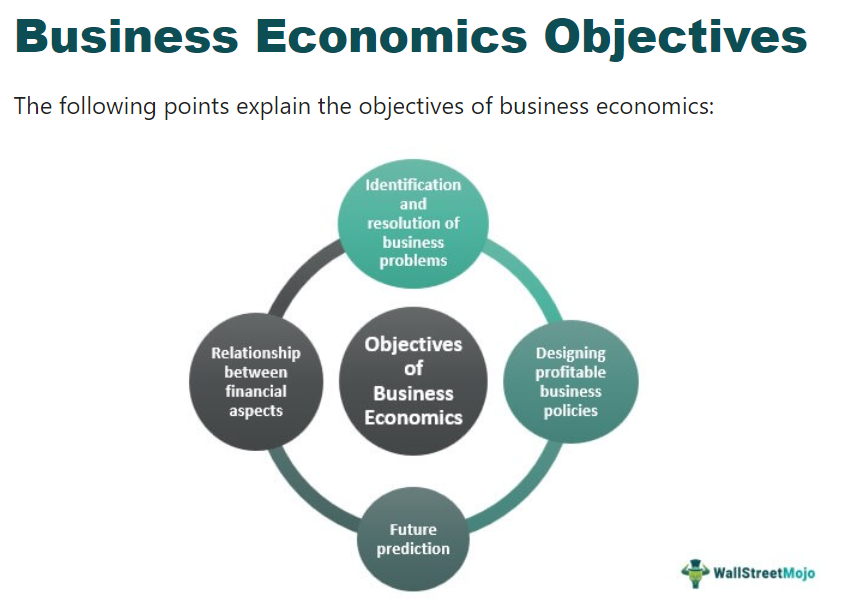A Deep Dive into the Global Impact of Business and Economics Policies
A Deep Dive into the Global Impact of Business and Economics Policies
Blog Article
Understanding Financial Concepts for Better Organization Decision-Making
In the complex landscape of contemporary organization, a detailed understanding of economic concepts can significantly improve decision-making procedures. The application of these financial concepts frequently reveals unforeseen obstacles and opportunities that can redefine strategic techniques.
The Fundamentals of Economic Concept
Financial theory functions as the foundation for understanding exactly how people and companies make choices in the visibility of shortage. At its core, economic concept checks out the allowance of limited resources to please unlimited desires. This essential concept of shortage demands compromises, engaging decision-makers to review the costs and benefits connected with various alternatives.
Both main branches of economic concept are microeconomics and macroeconomics. Microeconomics focuses on individual agents, such as companies and consumers, assessing their habits and communications in particular markets. It emphasizes ideas like supply and need, price elasticity, and market balance, which are crucial for recognizing how prices are established and exactly how resources are dispersed.
On the other hand, macroeconomics takes a look at the economic situation in its entirety, addressing wider issues such as rising cost of living, unemployment, and economic growth. It gives insights right into systemic phenomena that affect all financial representatives, guiding policymakers in crafting effective economic methods.
Ultimately, a strong grounding in economic concept is crucial for effective organization decision-making. By recognizing the concepts of deficiency, compromises, and market characteristics, companies can much better make and navigate complicated environments informed selections that enhance their competitive benefit.
Secret Economic Indicators
Secret financial indicators work as vital devices for examining the health and direction of an economy, supplying important understandings for business decision-making. These indications are quantitative actions that show the economic efficiency and can be categorized into leading, delaying, and coincident signs.
Leading indications, such as customer confidence indexes and securities market fads, forecast future financial activity, enabling businesses to prepare for adjustments on the market. Lagging signs, like joblessness rates and company revenues, provide insights into the economy's previous performance, assisting organizations to examine long-term patterns. Coincident indications, such as GDP growth and retail sales, fluctuate simultaneously with the economic climate, supplying a real-time photo of financial conditions.
Recognizing these indicators enables businesses to make educated choices regarding investments, resource appropriation, and strategic planning. For circumstances, a rise in consumer confidence might trigger business to enhance production in expectancy of greater need. On the other hand, climbing unemployment prices may lead to a reevaluation of growth plans. By closely checking these essential economic signs, businesses can navigate unpredictabilities and position themselves effectively in the ever-changing economic landscape, eventually improving their decision-making procedures and lasting success.

Market Structures and Characteristics
Recognizing market frameworks and characteristics is important for businesses aiming to thrive in affordable settings. Market frameworks, generally categorized right into perfect competitors, monopolistic competitors, oligopoly, and monopoly, considerably influence prices techniques, item differentiation, and affordable actions. Each structure provides distinct obstacles and opportunities that can dictate a firm's strategic instructions.
Oligopolies, characterized by a few leading gamers, lead to synergistic decision-making; firms should meticulously consider rivals' actions to their activities. Monopolies exist when a solitary company regulates the market, resulting in optimal rates power but usually drawing in governing scrutiny.
Understanding these characteristics enables businesses to expect market fads, adjust strategies, and enhance source allotment. Additionally, acknowledging how outside factors like technology and regulation influence these structures can enhance critical preparation. By grasping market frameworks and characteristics, firms can make informed decisions, ultimately enhancing their affordable setting and driving sustainable growth.
Customer Behavior Insights
Customer behavior plays a critical function in shaping business methods and results. Comprehending how customers make buying decisions, their visit this page choices, and the elements affecting their actions can dramatically improve a company's capability to meet market needs. Secret understandings right into customer behavior can be originated from assessing demographics, psychographics, and behavior patterns.
Group factors such as age, earnings, sex, and education and learning degree give a fundamental understanding of target markets. Psychographics delve deeper, discovering consumers' values, way of lives, and perspectives, which can affect brand loyalty and product understanding. Behavioral insights, such as acquiring frequency and response to promotions, are very useful for customizing advertising efforts.
Furthermore, exterior aspects like financial problems, social trends, and technological developments visit here likewise affect customer options. During financial recessions, customers may prioritize necessary items over deluxe products, changing demand patterns.
Applying Economics to Method
Insights acquired from consumer actions contribute in creating effective company strategies. By leveraging financial concepts, businesses can better recognize market dynamics, enhance resource allotment, and boost competitive placing. Analyzing need elasticity, for circumstances, allows firms to readjust rates methods to take full advantage of earnings while staying attractive to consumers.
Furthermore, comprehending market segmentation allows services to tailor their offerings, ensuring they meet the details requirements and choices of diverse consumer teams. Business and Economics. This targeted approach improves customer satisfaction and promotes brand name loyalty

Including game theory right into tactical planning also supplies insights right into competitive habits, allowing companies to expect competing activities and devise counter-strategies properly.

Final Thought
In conclusion, a comprehensive understanding of financial concepts substantially improves business decision-making. By checking out market frameworks, assessing customer habits, and analyzing vital financial indicators, companies can establish effective techniques that align with market demands.
In the facility landscape of modern company, a thorough understanding of economic principles can significantly enhance decision-making procedures.Leading signs, such as consumer confidence indexes and supply market trends, forecast future financial activity, permitting businesses to anticipate modifications in the market. By very closely checking these essential economic signs, services can browse unpredictabilities and place themselves successfully in the ever-changing economic landscape, inevitably boosting their decision-making procedures and lasting success.
By leveraging financial concepts, businesses can much better recognize market characteristics, enhance resource allowance, and enhance competitive positioning.In verdict, an extensive understanding of financial principles substantially boosts organization decision-making.
Report this page